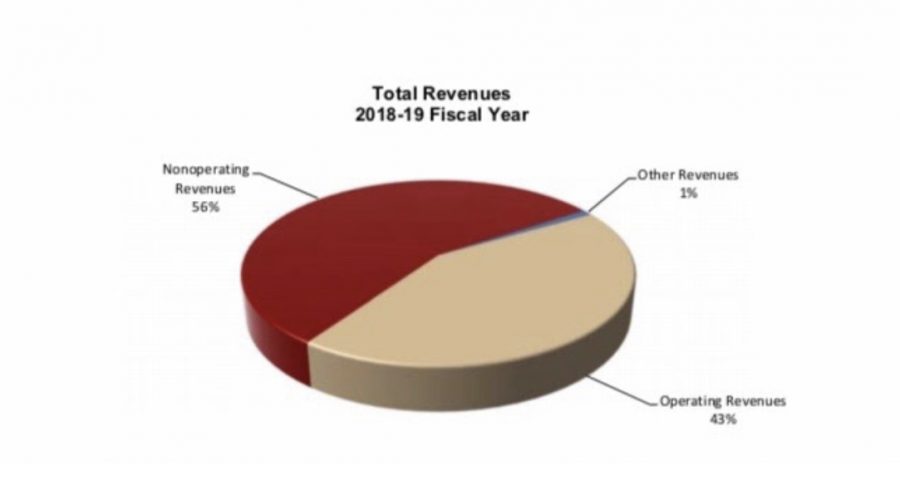A majority of the University of North Florida’s courses were moved online this fall for remote learning, while restrictions on amenities and activities were tightened. Many students were pushed to stay at home. This begged the question, why has our tuition not been discounted?
Here is why:
The State of Florida Auditor General requires the University’s financial audit to be public record. The last updated audited report for the University of North Florida’s fiscal year 2019 ended June 30, 2019.
When looking at the revenues and expenses located in UNF’S most recent financial income statement, it is important to notice that the University runs at a deficit, meaning that more money is spent than is collected in revenue.
To break this down in simple terms, last year, a little over half of UNF’s revenue, came from student tuition which accounted for approximately $75 million. The next biggest figure in revenue came from sales at around $35 million. State, local and federal grants accounted for some of the revenue. Overall, the university’s total operating revenues were around $126 million.
However, the total operating expenses of the university was around $288 million. This was the expense of student education with access to bonus resources and activities on the side.

Out of those expenses, $177 million went to compensation and employee benefits, which is money to pay our professors and staff. The university spends more money on its employees than we pay in tuition. The other operating expenses included scholarships, fellowships and waivers at around $23 million, which wrote off some of our tuition making that number closer to around $50 million.
It could be argued that the university gives students a fair value and a good deal for what is contributed. Students paid $50-75 million in tuition last year, but the university had to spend around $288 million to operate. The State of Florida gives the university more money than students do. Half of student education is subsidized by the state. A discount could be argued fair with the current times and limited ability to use some of the operating expenses, but since the university operates at a deficit, it would not be feasible to allow all employees and professors to keep their jobs.
Full details of the most recent financial report and further information can be found here.













